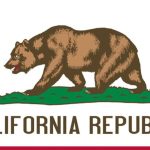“But what we’ve seen just through doing very basic scans is we are able to come up with examples constantly that are false scientific-looking or mimicking legitimate news saying everything from COVID is a hoax, through to the more wild stuff such as vaccines containing 5G receptors,” Mr Cooper said.“The problem is we can very easily find these examples with no trouble but it’s difficult to gauge the scale and the veracity of the problem because there’s no oversight.“The platforms are the only entities that have a bird’s-eye view over what’s trending, what’s going viral, and how far and wide.”Mr Cooper said the live portal would allow public health officials and journalists to track misinformation in real time.“An example is if there’s a story about an adverse reaction to the vaccine in Australia — it might be a real story, it might be a fake story — that will get picked up and will trend through those anti-vax groups and the COVID hoax groups very quickly,” he said.
“It will be highly engaged with and the algorithms will pick that up as ‘good content’ because it’s engaging and then it will amplify it across the platform.”The purpose of the live list wasn’t to determine what was true or not, Mr Cooper said, but rather to reveal what was trending.“The most trending and engaging is the content that’s more sensational, often the more conspiratorial, and so it will help us catch the really harmful content,” he said.Immunisation Coalition chief executive Kim Sampson said “vaccine hesitancy is a real threat to Australia, and the world’s, ability to return to some semblance of normalcy”.“There’s misinformation, disinformation, and distrust circulating through various platforms,” he told NCA NewsWire.“The purpose of the live list is to give us a better handle on where this information is coming from so it gives us a better chance of providing information to the public where it is needed.”
The bid from the newly formed coalition comes as concern over public figures spruiking misinformation online intensifies, including controversial MP Craig Kelly and celebrity chef Pete Evans, who have developed a social media following by promoting wild claims about coronavirus.Mr Kelly has harvested a community of followers who are consuming up to three posts a day on his Facebook account, including spreading virus theories and claims that asking children to wear face masks was “child abuse”.But Mr Cooper said the intention of the coalition wasn’t to censor what was being spread online, but to understand what was being discussed and what mistruths needed to be counteracted.“Free speech is really important and we don’t want to make assessments around what should be allowed up and what shouldn’t,” he said“But what’s important in this case is that misinformation comes from all different kinds of sources — it comes from elected officials, it comes from influencers, it comes from people who are trying to generate ad revenue on their fake news websites by pushing sensational links on COVID vaccine conspiracies.“The source of all this misinformation is really diverse so if we’re going to make an assessment around how to deal with any number of those sources, we actually need to have more information about how it’s travelling and how much the platforms themselves are responsible for amplifying the content.”
Powered by WPeMatico






